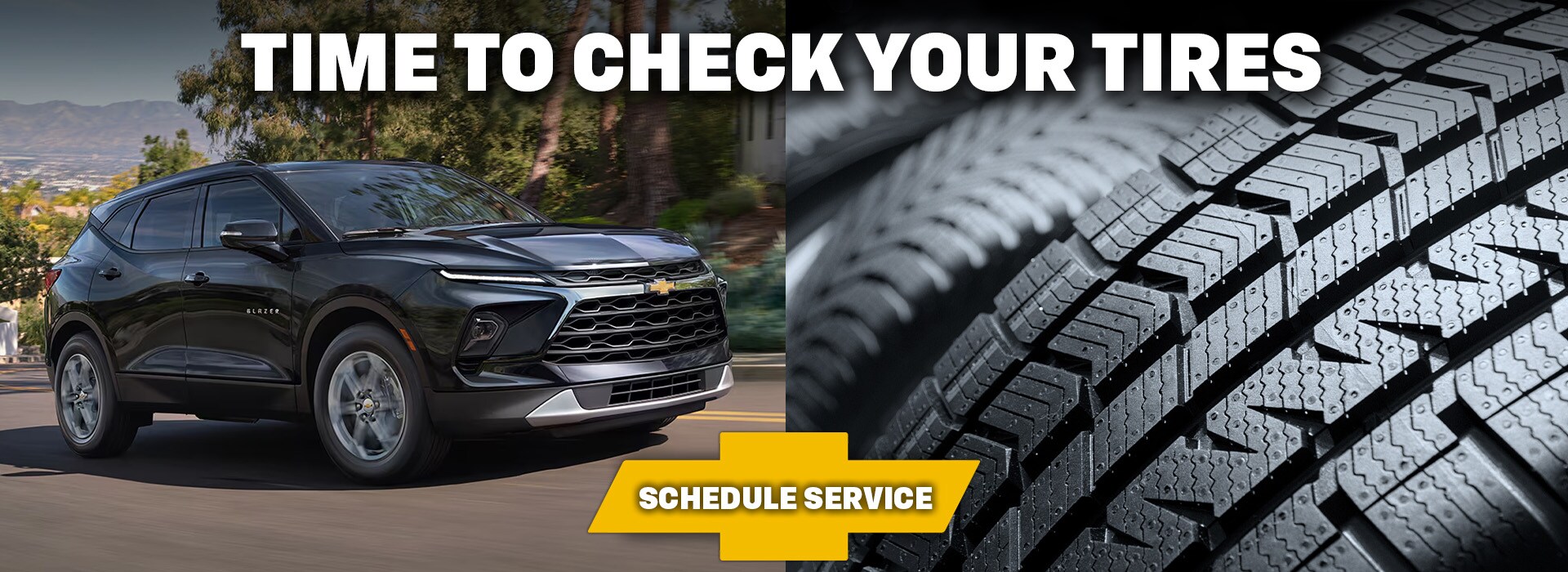
How Does Tire Pressure Affect Gas Mileage?
Maximize Your Fuel Efficiency With Proper Tire Care
While many drivers focus on engine specs or fuel grades to cut costs at the gas station, tires often go overlooked, despite playing a major role in how far your fuel takes you. The question is, does tire pressure affect gas mileage? Without a doubt. It's actually one of the simplest and most effective factors you can manage to boost mileage. Keeping your tires properly inflated isn't just about comfort or safety, it's also key to reducing fuel consumption and extending the life of your tires. Under or over-inflated tires can lead to uneven wear and force your vehicle to work harder, burning more gas in the process. Understanding the best tire pressure for MPG can be a game-changer for your budget and your vehicle's performance.
At Dick Genthe Chevrolet, we're committed to helping you get the most out of your Chevy. Here's a look at how tire pressure affects miles per gallon, how to identify the optimal pressure levels for your tires, and the Chevy technologies designed to help you drive smarter and more efficiently. Does tire pressure affect gas mileage? Absolutely, and we've written a blog on what you need to know. When you're ready to get the most out of your tires, schedule service with us today!
Can Low Tire Pressure Really Hurt Your Gas Mileage?
It's easy to overlook, but tire pressure plays a much bigger role in fuel economy than most drivers realize. When your tires are underinflated, they increase rolling resistance, forcing your engine to burn more fuel just to keep moving. That extra drag can cut your gas mileage by up to 3%, according to the U.S. Department of Energy. If you've ever wondered if low tire pressure affects gas mileage over time, the answer is yes, as consistently low pressure adds up to real fuel loss.
And while it might seem tempting to overinflate for a quick MPG boost, going beyond the recommended pressure can actually reduce traction, wear your tires unevenly, and even put you at risk of a blowout. Does tire pressure affect gas mileage when overinflated? Yes, but not in the way you'd hope. It's all about finding the ideal spot with a pressure that keeps you driving smoothly, efficiently, and safely.
In Chevy SUVs and trucks, like the rugged Chevy Silverado 1500, the road-ready Chevy Equinox, or the family-ready Chevy Tahoe, tire pressure makes an even bigger difference, especially if you're racking up highway miles or towing heavy gear. So again, does tire pressure affect gas mileage in larger vehicles? It sure does, even more so under heavy loads.
What's the Ideal Tire Pressure for Fuel Efficiency?
The best tire pressure for gas mileage isn't a one-size-fits-all number, it's the one printed in your Chevy's owner's manual or on the driver's-side door jamb. This manufacturer-recommended PSI is designed to give your vehicle the perfect balance of performance, efficiency, and safety.
A common myth is that higher tire pressure equals better gas mileage. The truth is, overinflation can stiffen your tires and compromise both traction and comfort. Stick with the recommended PSI to keep your ride smooth and your fuel costs low. Does tire pressure affect gas mileage even at slightly off levels? It does. Precision matters more than many realize.
How Chevy Keeps You Rolling Efficiently
Today's Chevrolet vehicles make it easier than ever to stay on top of tire pressure and fuel performance, thanks to smart features designed with your budget and safety in mind:
- Tire Pressure Monitoring System: Standard in most Chevy models, the TPMS gives you a heads-up when any tire falls below the recommended PSI, helping you take quick action before fuel efficiency takes a hit. Wondering, does tire pressure affect gas mileage when just one tire is low? It does, because even one underinflated tire can create uneven drag.
- myChevrolet App: Stay connected wherever you are. Get tire pressure alerts sent straight to your smartphone, plus conveniently schedule service at Dick Genthe Chevy with just a few taps.
- Eco Mode: While this doesn't directly adjust tire pressure, Eco Mode on select models helps you adopt smoother driving habits that reduce fuel consumption over time.
Quick Tips for Better Fuel Economy Through Tire Care
If you're serious about getting the most from every gallon, tire maintenance is a great place to start. Here's how:
- Check tire pressure once a month or before long trips. Still asking yourself, does tire pressure affect gas mileage over the course of a road trip? Definitely, as maintaining optimal PSI is key to long-distance fuel savings.
- Use a high-quality pressure gauge to ensure accuracy.
- Keep an eye on tire pressure when the weather changes because cold temperatures can cause pressure to drop.
- Stop by our service center to check your tire pressure and receive expert advice.
- Don't ignore underinflated tires. They can quietly reduce your MPG and tire life. This is a prime example of how tire pressure affects gas mileage.
Save on Fuel, Drive with Confidence
Better gas mileage doesn't always require major upgrades. Sometimes, it's as simple as keeping your tires at the right pressure. Whether you're behind the wheel of an efficient Chevy Malibu, a hardworking Chevy Colorado, or an adventurous Chevy Trailblazer, proper tire care helps you drive farther, safer, and smarter. Our certified technicians are here to help you get peak performance and savings from every mile. Take control of how tire pressure affects gas mileage, ensuring that your ride is road-trip ready by booking a service appointment at Dick Genthe Chevy today!
Schedule Service
* Indicates a required field
-
Dick Genthe Chevrolet, INC.
15600 Eureka Road
Southgate, MI 48195
- Sales: (866) 309-8271
Loading Map...